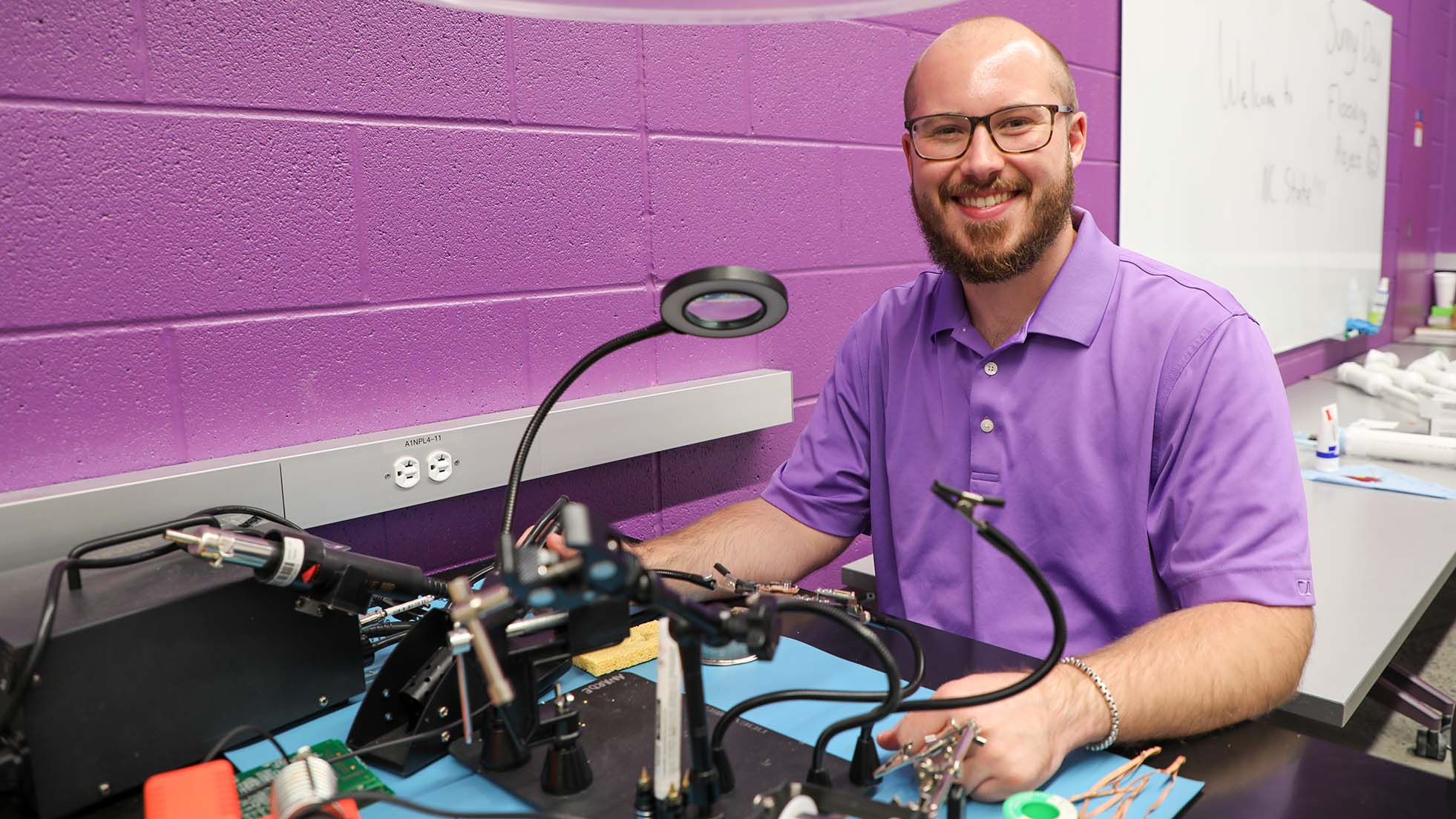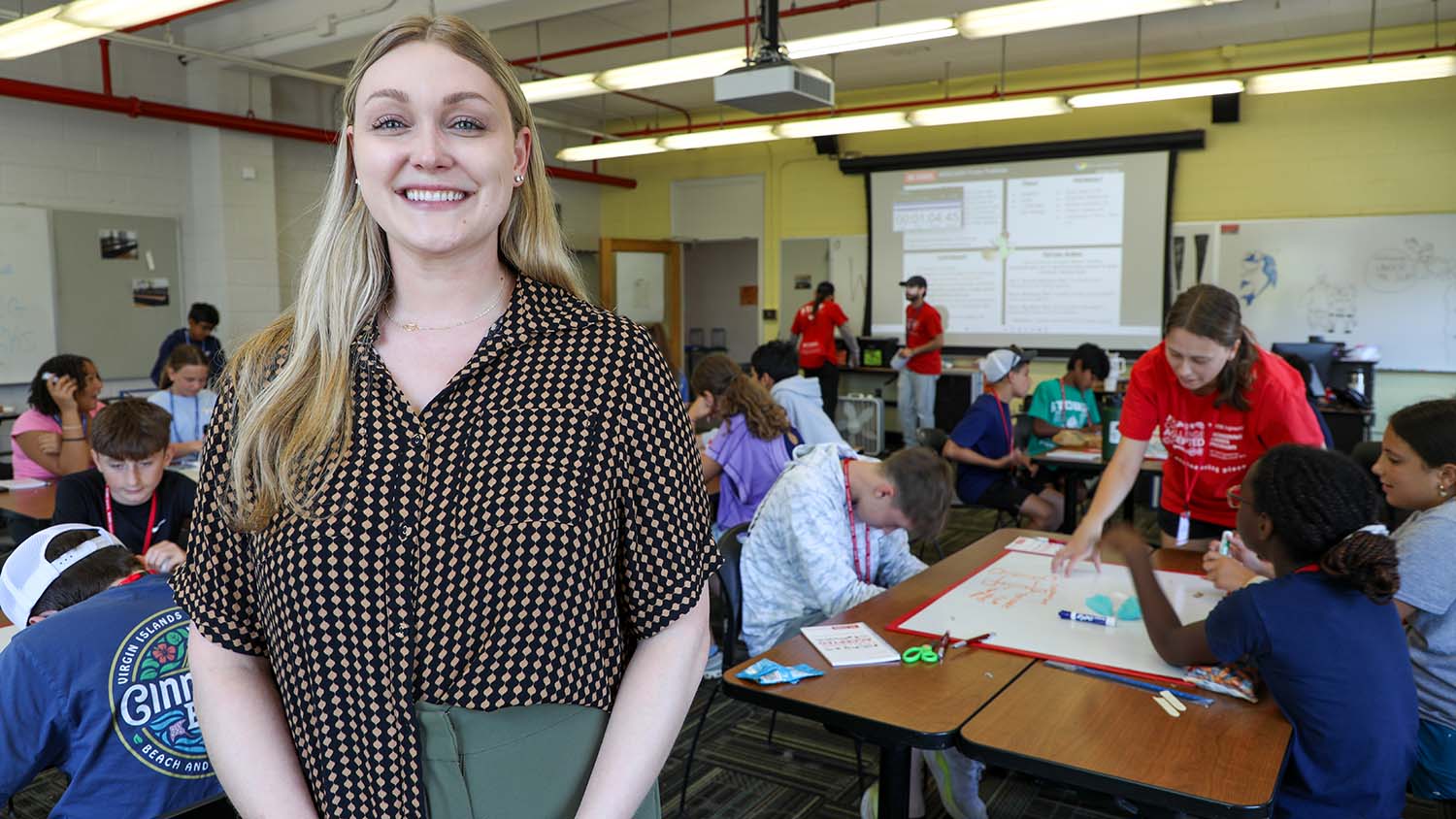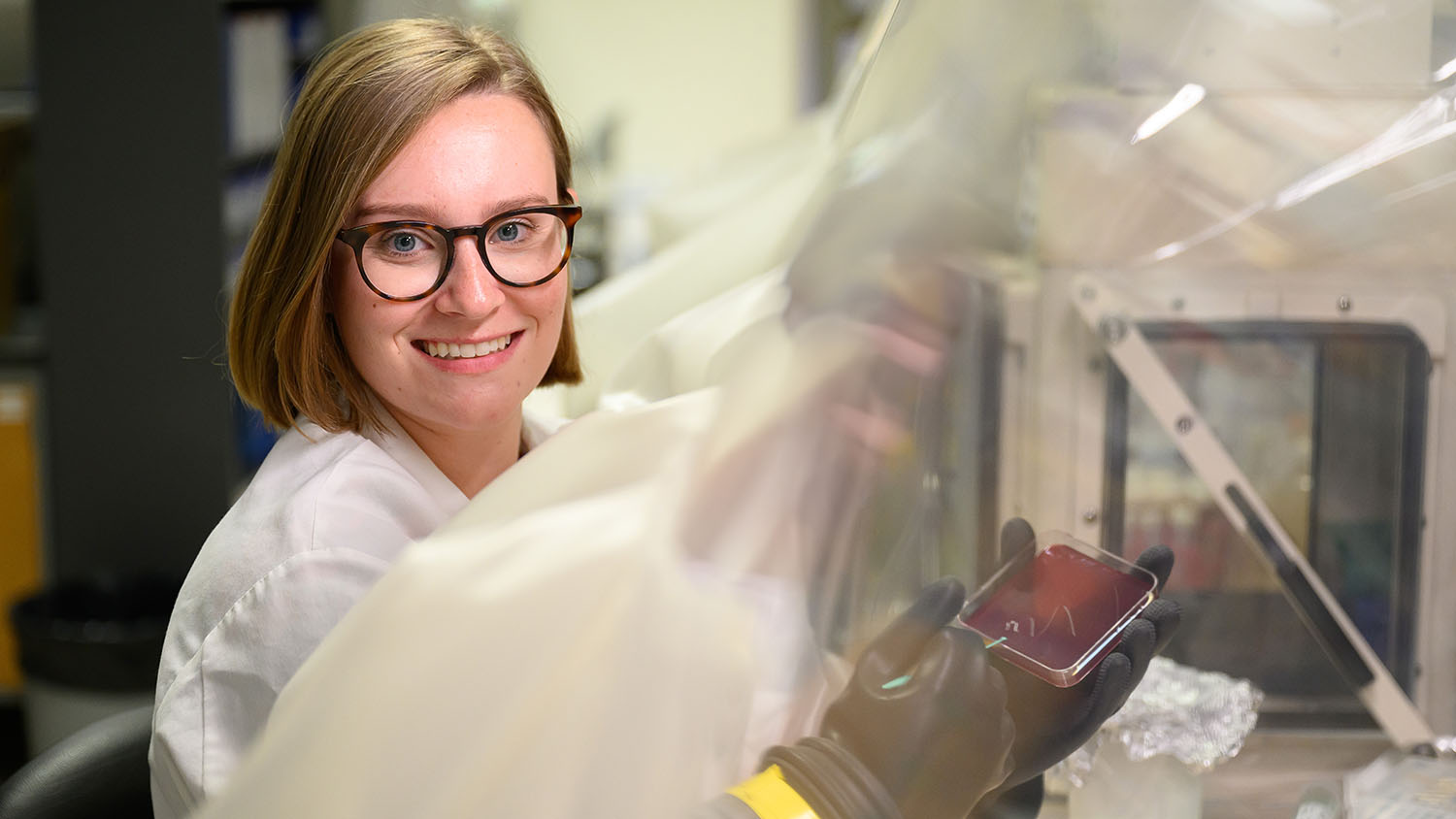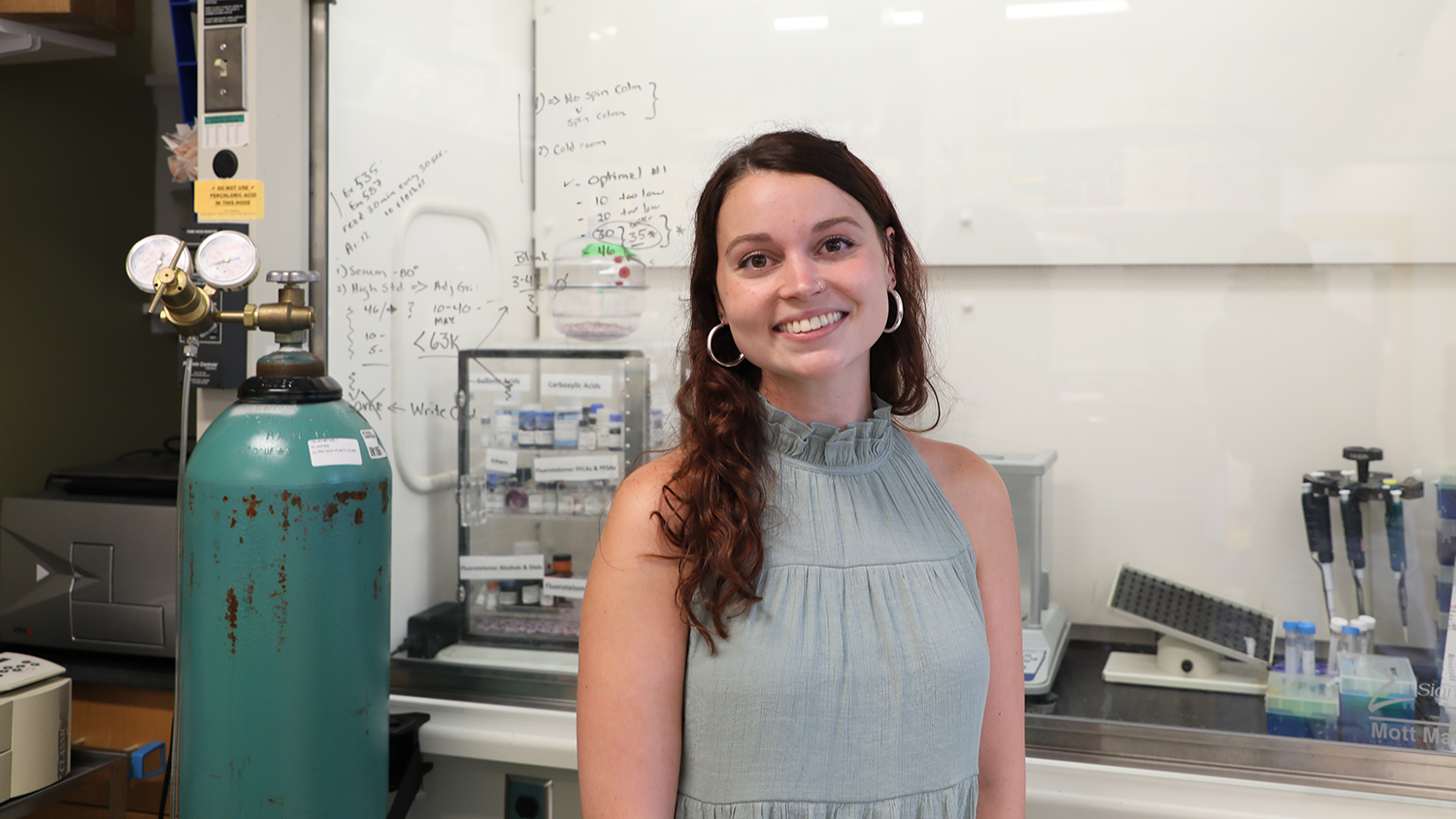Ryan McCune is a second-year Ph.D. student in civil engineering concentrating on coastal engineering at the College of Engineering. He is a first-generation student originally from York, Pennsylvania. Before attending NC State, he earned a dual degree from the University of Delaware: a Bachelor of Civil Engineering and a Bachelor of Environmental Engineering with Distinction.
Ryan’s research focuses on chronic coastal flooding in North Carolina as part of the Sunny Day Flooding Project. Recently awarded a 2024 National Defense Science and Engineering Graduate Fellowship from the Department of Defense, Ryan will continue his research in pursuit of understanding and aiding communities facing challenges from our changing climate.
Tell us about your journey to graduate school and what led you to NC State.
If you had told a younger version of myself that I would be pursuing a graduate degree, let alone in North Carolina, I would have been very surprised. I grew up in south central Pennsylvania and the only people that I really knew who had graduate education were teachers. However, during my time as an undergraduate I was fortunate enough to obtain internships and research experiences. Through those experiences, I learned that I really enjoyed research. I also saw that the people who held careers that I would like–those working on innovative, diverse projects and working directly with communities–held graduate degrees. So, I chose to pursue graduate school.
That pursuit led me to NC State. I was primarily drawn by the work of my advisor, Dr. Katherine Anarde, and the Sunny Day Flooding Project, an interdisciplinary team working directly with communities along North Carolina’s coast to study chronic coastal flooding. I also enjoyed the culture the Department of Civil, Construction, and Environmental Engineering fosters. Beyond that, I could tell that there was a strong support structure and a lot of opportunities at all levels at NC State.
Tell us about your research and/or teaching experience.
My research as part of the Sunny Day Flooding Project focuses on chronic coastal flooding. This is flooding outside of events like hurricanes, which you may have heard referred to as nuisance flooding, high-tide flooding, sunny day flooding, or a suite of other names. Chronic coastal flooding is a growing issue with sea level rise which will impact North Carolina and other coastal areas globally.
I have had numerous opportunities within my research, and they have all been impactful in shaping my perspectives and building my skills as a researcher and communicator. The most impactful component of my work has been engaging our partner communities throughout the work that we do. I have been able to attend community events, speak one-on-one with community members, and present research results to stakeholders. I have also been able to attend several conferences and workshops both within and outside the state to develop as a researcher.
Outside of research, I have also had chances to explore teaching both through a teaching assistantship and by presenting guest lectures in the Introduction to Coastal Engineering course in the Department of Civil, Construction, and Environmental Engineering.
How has the Graduate School and/or NC State helped you with your professional development?
There are a lot of opportunities and available support throughout NC State. The University Fellowships Office was a wonderful resource as I applied for the National Defense Science and Engineering Graduate Fellowship Program. I am also a KIETS Climate Leaders Program Scholar, a great program for developing professional and leadership skills. There are also numerous professional development seminars that you can attend, and I have found them helpful.
What advice do you have for new or current graduate students?
I have two pieces of advice: (1) Be confident, and (2) lean into your joyful, curious spirit. I think it is easy in graduate school to constantly seek to compare yourself to others or be self-critical. Still, it is important to remember that you are here for a reason, you are amazing, and you can get through any obstacle. It is also easy to lose your joy and curiosity if you don’t protect your time and well-being. So, try your best to maintain whatever feeds your joy and stay curious.
What are your plans after graduation?
I am still deciding what my path after graduation may look like. I would like to continue working with communities in a career at the intersection of engineering and other disciplines for climate adaptation.
What does being an NC State graduate student mean to you?
It means being committed to growth, innovation, and collaboration. NC State fosters interdisciplinary approaches and provides a strong community. There are many opportunities for growth that you can bring to your work and your future careers to continue to innovate and change the future.
Fun fact about yourself.
I enjoy cooking and baking!
- Categories:



